The set of poems and drawings known as the Oxherding series presents a parable about the conduct of Buddhist practice. In the most common version, attributed to a 12th-century Chinese Zen master, there are ten drawings, the first of which shows a young herder who has lost the ox he is supposed to be tending. In subsequent images he finds the ox’s tracks, sees the beast itself, tames it, and rides it home. In the seventh drawing the ox disappears: it “served a temporary purpose,” the accompanying poem says; it was a metaphor for something, not to be mistaken for the thing itself. The herder too disappears in the next drawing; the image simply shows a circle (Japanese, enso), a common symbol for enlightenment. The ninth drawing implies that the person who has achieved enlightenment does not then retreat from the world; called “Returning to the Roots, Going Back to the Source,” it usually shows a scene from nature. The final drawing shows a chubby fellow with a sack “entering the village with gift-giving hands.” Presented here are the painter Max Gimblett’s new versions of the traditional drawings, along with fresh translations of the classic poems. —Lewis Hyde
To read Lewis Hyde’s “One Word” and “Spare Sense” versions of these poems, click here.
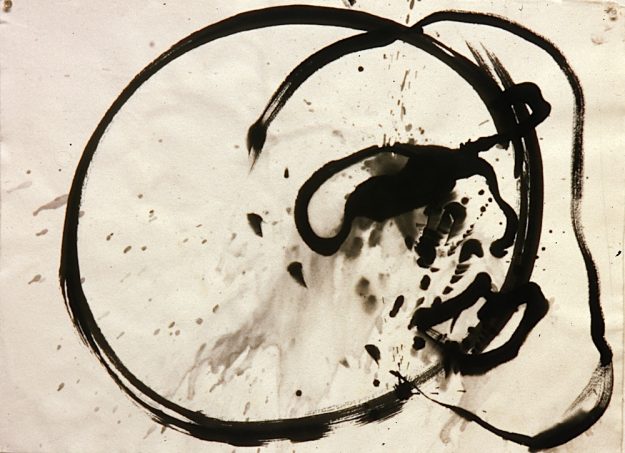
I: Searching for the Ox
Alone in the deep woods, despairing in the
jungle, searching in darkness!
Flood-swollen rivers, mountains beyond
mountains, the trail endless and
unchanging.
Bone-tired, heart-weary, the whole thing seems
hopeless.
No sound but the evening cicadas singing in a
grove of maple trees.
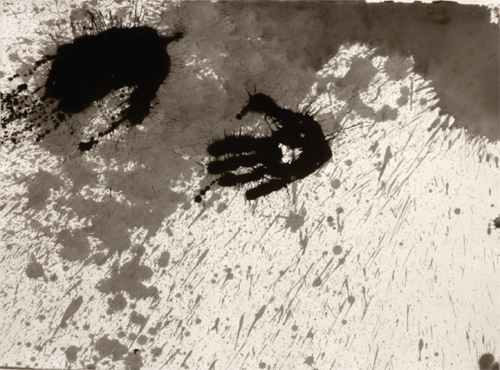
II: Seeing the Traces
In the woods, along the riverbank, strange
marks all around.
What has bent the sweet grass down just there?
The deepest canyons, the highest peaks—nothing
can hide that constellation, the Nose of the
Ox
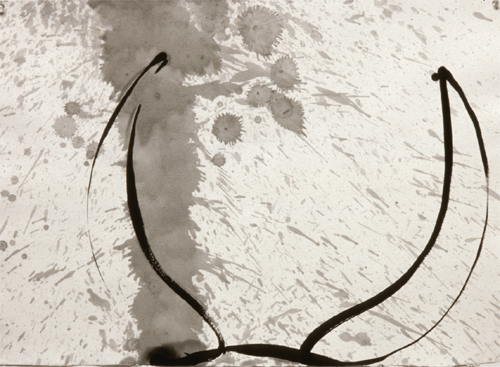
III: A Glimpse of the Ox
The meadowlark sings, sitting on a branch.
Warm sun, light breeze, green willows by the river.
The Ox stands right there; where could it hide?
Splendid head, stately horns, who could sketch their likeness?
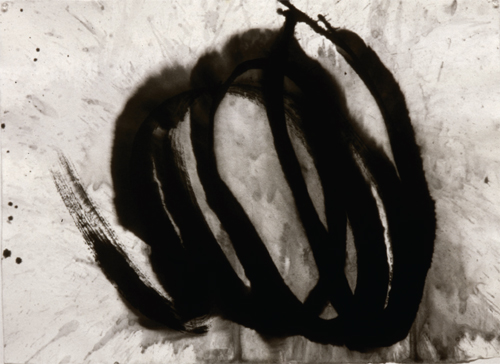
IV: Catching the Ox
He must hold the rope with all his might
for the Ox is two-thousand pounds of old habit.
One moment it runs to the high meadows,
then gets lost in fog-bound riverbottoms.
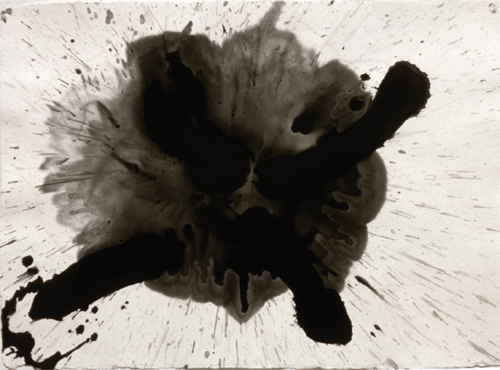
V: Taming the Ox
If he doesn’t keep the whip and rope near at
hand
the Ox will soon find out the nearest muddy
wallow.
But—care for it properly and it becomes
gentle, clean,
following the herder willingly, the rope gone
slack.
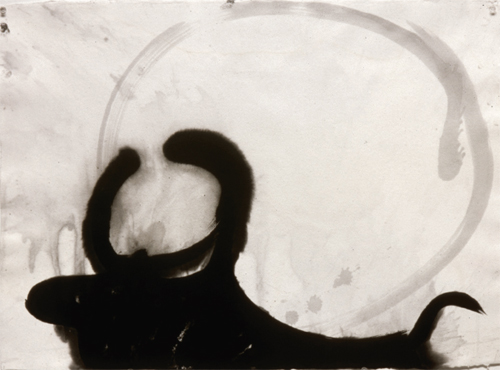
VI: Riding Home
He is riding home but seems to be in no hurry.
Evening mist absorbs the flute tones. Their
harmony
carries his heart to the horizon line.
Talk about grass is not what keeps this Ox
alive.
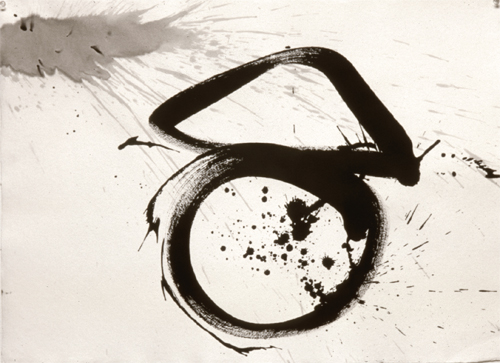
VII: Ox Forgotten
He could not have gotten home without that
animal,
but oh, the Ox has disappeared and the man sits
by himself, content.
His reverie does not bear the red mark of solar
time.
The rope and whip lie forgotten under the cabin
thatch.
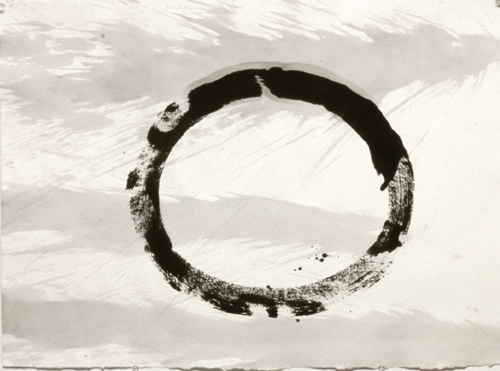
VIII: Self and Ox Forgotten
Empty whip, empty rope, empty Ox, empty
human being.
“The vast blue sky” is not at all the vast blue
sky.
Think of snow falling on a blazing fire. Just
there
the spirit of the ancient masters is fully
present.
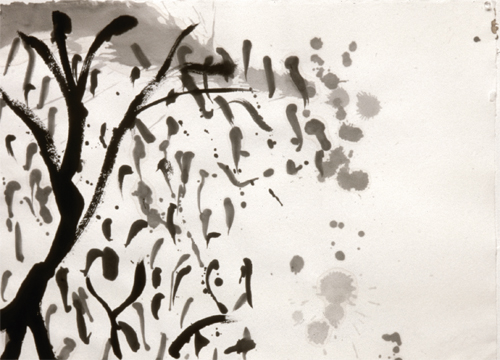
IX: Going Back to the Beginning
Seeking the Source, the One True Origin: why
all this hard work?
Better to stay at home as if ears and eyes had
never opened.
He sits in the cabin. There is nothing to hunt
for beyond the gate.
The streams flow and flowers open, vividly red.
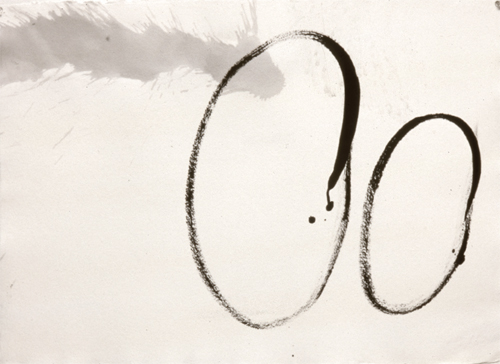
X: Entering the Village with Helping Hands
Barefoot, bare-chested, he walks into town.
Dusty, spattered with mud, how broadly he
grins!
He has no need of magic powers. Near him
the withered trees come into bloom again.
♦
Read an exclusive interview with Max Gimblett and Lewis Hyde here.